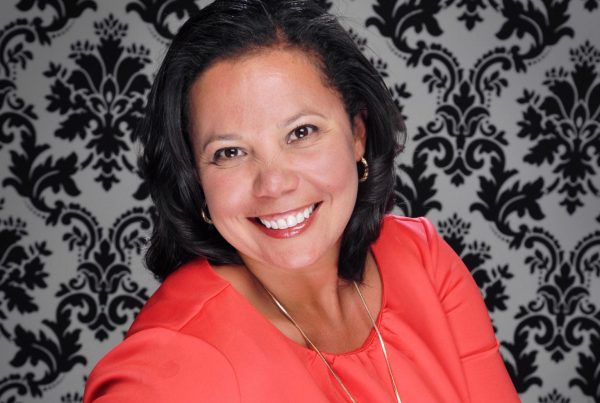
A new year and a new semester both indicate that it is time for new beginnings and an opportunity to do things differently
It is possible to bring not only meaningful change but transformational change to your content if it is based on educational best practice.
I would like to highlight some reflections from Elsevier’s Faculty Development Conference from keynote speaker Patricia Benner.
She is not only the preeminent nurse educator, theorist, and author of our generation, but also the lead researcher of the Carnegie Foundation’s research that detailed what is needed to radically transform nursing education today whose findings were detailed in Educating Nurses: A Call for Radical Transformation.
This book rocked my world as a new nurse educator and gave me permission to do things very differently. Though Educating Nurses was published five years ago, it remains relevant today and is foundational to bring meaningful change based on educational best practice.
My Journey
After my second year of classroom teaching back in 2011, I began to feel disillusioned and discouraged. From my perspective, there was a clear disconnect between the realities of clinical practice and traditional nursing education.
Content presented in the classroom and skills lab had little contextualization to practice. Classroom lectures were content heavy and students were clearly burdened and highly stressed.
Since I had not read nursing textbooks for over twenty years, I immediately noticed that the med/surg textbooks had gotten heavier, thicker and were now in two separate volumes since I graduated! From my vantage point, the amount of content that students were expected to master was unrealistic and was actually a barrier to student learning.
I will finish the rest of my story at the end of this blog, but want you to hear the essence of what Dr. Benner shared as the keynote speaker at Elsevier this past week (based on my notes-NOT quotes) as she highlighted what is needed to bring meaningful and transformational change to nursing education (see my blog: How Do You Spell Clinical Reasoning-B-E-N-N-E-R)
Patricia Benner’s Insights
Importance of Salience
- Nursing education must emphasize what content/clinical data is salient…what is more or less important. New nurses do not have this and need to develop
- What is the difference between a teacher and learner? Focus on what students must they know vs. knowing everything. What is salient and most important
Clinical Reasoning
- Move from emphasizing critical thinking to multiple ways of nurse thinking including clinical reasoning
- Clinical reasoning is practical reasoning. It is reasoning across time so students can recognize and identify clinical trends and trajectories
What is Meaningful Learning
- Need to integrate the three professional apprenticeships (knowledge-science-ethical) plus application of the “art” of nursing to practice
- Students require nursing knowledge in order to be ethical
- Must focus on the student learner. What do students need to understand deeply and present this content at their level
- Content needs to be contextualized to the bedside and experiential learning essential to practice
- Students need multiple frames of reference to address patient concern/problem. This includes psychosocial as well as obvious physical concerns. They need to see the whole picture
Patient-Centered Learning
- Get into the patient’s experience. This is needed to produce empathy and caring
- Students need to confront suffering and vulnerability in the clinical setting
- Teach to enrich learning. This requires situated coaching in the context of the clinical setting to make concepts come alive
Strategies to Enhance Classroom Learning
Linda Caputi had an excellent breakout session at Elsevier on developing active and meaningful learning in the classroom. The essence of her insights built on and dovetailed with what Patricia Benner shared earlier that included the following points:
- Learning must include student EFFORT in order to be meaningful (this is worth emphasizing!) See my blog Why Educators Must Not Spoon Feed Adult Learners.
- Learn as you will work like a nurse…practice needs to play like real world
- Need to make learning stick to be able to retain, recall, and use to apply in the future
- Practice alone is insufficient…Students must be able to solve a problem with a clinical context to develop better learning
- Need to extract and emphasize the underlying principles or rules that differentiate types of problems….compare and contrast nuances of different types of presentations
- Elaboration is essential. Educators must connect prior knowledge to existing knowledge and how much ambiguity is present
What is Needed to Strengthen Student Learning
Taking the essence of what Patricia Benner and Linda Caputi shared the following principles become foundational to bring meaningful change to your program:
- Contextualize content and learning to clinical practice and emphasize what is MOST important
- Connect prior knowledge (patho-pharm-nursing, etc.) to current content to strengthen student learning and make needed connections
- Emphasize clinical reasoning
- No spoon feeding students! Making them work for their learning will make it meaningful and make it stick!
How?
There is nothing like a simple case study that can practically integrate these transformational principles into your class or clinical. That is the rest of my story. After I recognized the need to change in 2011 after reading Educating Nurses, I created salient case studies derived from my lens of clinical practice that emphasized clinical reasoning for my students that required them to apply and use knowledge.
Linda Caputi became aware of my work in 2011 that integrated the essence of the transformational paradigm shifts from Educating Nurses in a practical manner and as a result was asked to present my work at Elsevier so other nurse educators could create and bring meaningful change.
I presented for three consecutive years at Elsevier and have since spoken across the country and created my website to serve the needs of nurse educators and facilitate needed change. Everything on my website, but especially my wide variety of clinical reasoning case studies can help any nurse educator take that first step to bring transformational change.
In Closing
Remember the wisdom of the ancient Chinese proverb: A journey of a thousand miles begins with the FIRST step.
Take that first step today to do what is needed to bring active learning and educational best practice to your program today.
What do you think?
What do you plan to do differently this new year to bring needed change and strengthen the learning of your students?
Comment below and let the conversation begin!
Keith Rischer – Ph.D., RN, CCRN, CEN
As a nurse with over 35 years of experience who remained in practice as an educator, I’ve witnessed the gap between how nursing is taught and how it is practiced, and I decided to do something about it! Read more…
The Ultimate Solution to Develop Clinical Judgment Skills
KeithRN’s Think Like a Nurse Membership
Access exclusive active learning resources for faculty and students, including KeithRN Case Studies, making it your go-to resource.



